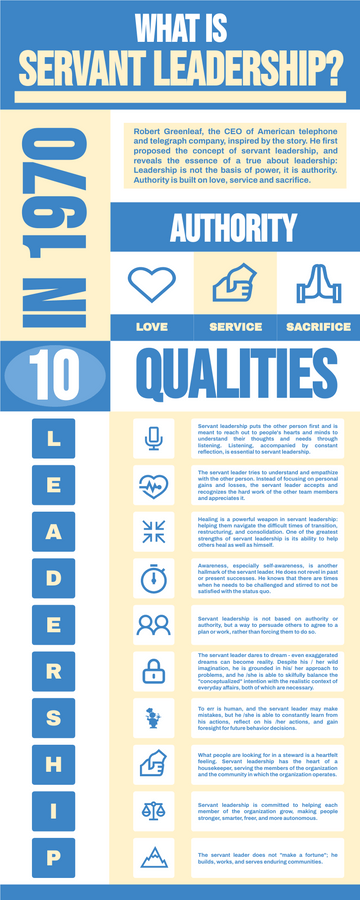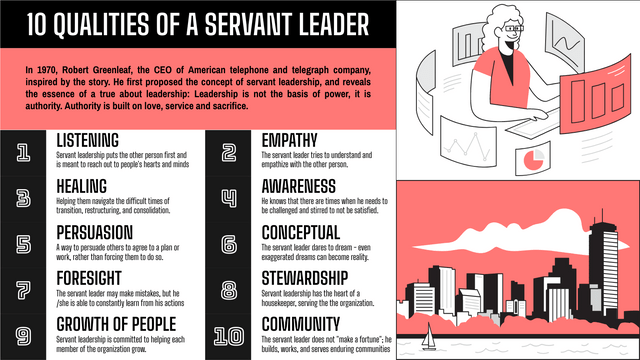The characteristics of servant leadership
In the east of the world, the ancient Indian thinker Chanakhya noted as early as the fourth century in his famous work Asashastra that:
“A wise king delights in the pleasure of his subjects”.
In the West, the idea of servant leadership can be traced back to Jesus Christ, who taught his disciples, Jesus called them together and said,
“You know that those who are regarded as rulers of the Gentiles lord it over them, and their high officials exercise authority over them. Not so with you. Instead, whoever wants to become great among you must be your servant, and whoever wants to be first must be slave of all. For even the Son of Man did not come to be served, but to serve, and to give his life as a ransom for many.”
(Mark 10:42-45)
The Ten Characteristics of Servant Leadership
Based on the long-term study of Greenleaf’s original works, Spear summed up ten characteristics of servant leadership.
They were:
- Listening means listening actively and sincerely to the voices of others;
- Empathy can strive to understand others, accept and recognize the uniqueness of others;
- Healing refers to have the ability to heal yourself and others.
- Awareness refers to having a deep self-awareness of oneself, having a clear understanding of one’s beliefs and values, and having a comprehensive and systematic view of problems.
- Persuasion is someone who mainly relies on persuasion rather than position authority to make decisions, and can effectively build consensus in the group.
- Conceptualization refers to the courage to dream, the ability to look at problems from a long-term perspective and step out of the daily routine.
- Foresight is good at summarizing experience, grasping the present, and being able to foresee the impact of current decisions on the future.
- Stewardship is a person who faithfully does everything for his people and serves the needs of others.
- Commitment to the Growth of People: Committed to the growth of every employee, able to recognize their great responsibility for the growth of employees.
- Building community is a commitment to building communities of close personal relationships in established institutions.

This post is also available in Deutsche, Español, فارسی, Français, English, Bahasa Indonesia, 日本語, Polski, Portuguese, Ру́сский, Việt Nam, 简体中文 and 繁體中文.


















